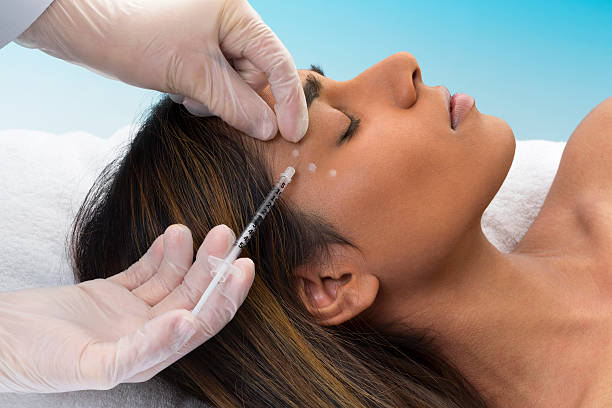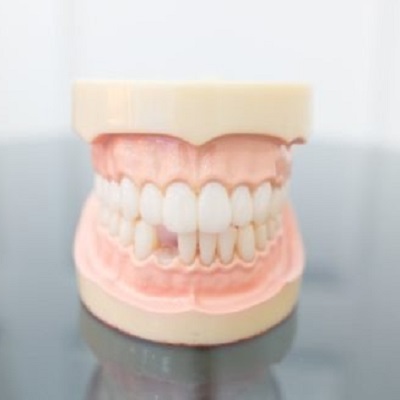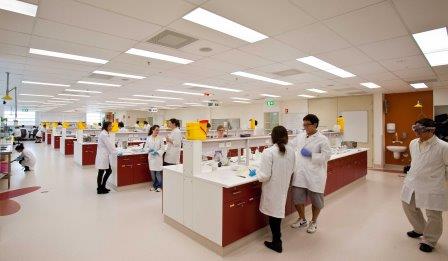Navigating the Challenges of Sexually Transmitted Diseases in Riyadh: A Health Guide
Sexually transmitted diseases (STDs) are a significant health concern worldwide, and Riyadh is no exception. Understanding these diseases, how they spread, and how to prevent them is crucial for maintaining your health and well-being. This comprehensive guide will delve into the challenges associated with sexually transmitted diseases in Riyadh, offering valuable information on prevention, symptoms, and available resources.
Understanding Sexually Transmitted Diseases
Sexually transmitted diseases in Riyadh (الأمراض المنقولة جنسياً في الرياض) are infections primarily spread through sexual contact. They can be caused by bacteria, viruses, or parasites. In Riyadh, as in other cities, the prevalence of these diseases is a concern due to various factors including sexual behavior, lack of awareness, and stigma.
Common Types of Sexually Transmitted Diseases
Chlamydia: A bacterial infection that often shows no symptoms but can lead to serious reproductive issues if untreated.
Gonorrhea: Another bacterial infection that can affect various body parts and may cause pain or discharge.
Syphilis: A bacterial infection that progresses through stages and can lead to severe health problems if left untreated.
Herpes Simplex Virus (HSV): A viral infection that causes sores around the genital area and can be managed but not cured.
Human Papillomavirus (HPV): A viral infection with multiple strains, some of which can lead to cervical cancer or genital warts.
Risk Factors for Sexually Transmitted Diseases in Riyadh
Understanding the risk factors for sexually transmitted diseases in Riyadh is essential for effective prevention. Some common risk factors include:
Unprotected Sex
Engaging in sexual activities without protection, such as condoms, increases the risk of STDs. Protection methods significantly reduce the likelihood of transmission.
Multiple Sexual Partners
Having multiple sexual partners can increase the risk of exposure to STDs. It is crucial to ensure that all partners are tested and to practice safe sex consistently.
Lack of Awareness
A lack of knowledge about STDs and their prevention methods can contribute to the spread of infections. Education plays a key role in reducing risks.
Stigma and Social Barriers
Stigma surrounding STDs can prevent individuals from seeking help and getting tested. Overcoming social barriers and promoting open discussions about sexual health is essential.
Symptoms to Watch For
Recognizing the symptoms of sexually transmitted diseases in Riyadh can lead to early diagnosis and treatment. Common symptoms include:
Painful Urination
Discomfort or pain while urinating can be a sign of an STD. It is important to seek medical advice if this symptom persists.
Abnormal Discharge
Unusual discharge from the genitals can indicate an infection. The color, consistency, and odor of the discharge can vary depending on the type of STD.
Sores and Lesions
Genital sores or lesions are characteristic of several STDs, including herpes and syphilis. These should be evaluated by a healthcare professional.
Itching and Irritation
Persistent itching or irritation in the genital area may signal an STD. This symptom can be accompanied by redness or swelling.
Preventive Measures for Sexually Transmitted Diseases
Preventing sexually transmitted diseases in Riyadh involves a combination of strategies and practices. Effective prevention methods include:
Using Protection
Condoms are a highly effective method for reducing the risk of STD transmission. Consistent and correct use is crucial for their effectiveness.
Getting Tested Regularly
Regular STD testing is important for sexually active individuals, especially those with multiple partners. Early detection can prevent complications and further spread of the disease.
Practicing Safe Sex
In addition to using condoms, practicing safe sex involves open communication with partners about sexual health and histories.
Vaccination
Vaccines are available for certain STDs, such as HPV. Vaccination can provide protection against specific infections and reduce overall risk.
Seeking Help and Resources
Accessing resources and seeking help for sexually transmitted diseases in Riyadh is vital for managing and treating infections. Available resources include:
Public Health Services
Local public health services offer testing, treatment, and counseling for STDs. They also provide educational resources to increase awareness and prevention.
Support Groups
Support groups can offer emotional support and practical advice for those affected by STDs. They can help reduce stigma and provide a network of individuals with similar experiences.
Educational Programs
Educational programs and workshops focus on raising awareness about STDs, prevention methods, and safe sexual practices. These programs are often available through community organizations and health centers.
Overcoming Stigma and Promoting Awareness
Addressing the stigma associated with sexually transmitted diseases in Riyadh is essential for effective public health strategies. Encouraging open conversations and reducing the shame associated with STDs can lead to more individuals seeking help and adopting preventive measures.
Promoting Open Dialogue
Encouraging open dialogue about sexual health can help reduce stigma and promote healthier behaviors. Education and awareness campaigns play a key role in fostering a more informed and supportive community.
Supportive Community Efforts
Community efforts to support individuals with Sexually Transmitted Disease in Riyadh and promote safe sexual practices can make a significant impact. Collaboration between health organizations, educational institutions, and community leaders is crucial for effective outreach.
Navigating the challenges of sexually transmitted diseases in Riyadh requires a comprehensive approach that includes understanding risks, recognizing symptoms, and implementing preventive measures. By staying informed, practicing safe sex, and seeking support, individuals can protect their health and contribute to reducing the spread of STDs. Education, awareness, and open dialogue are key to overcoming challenges and fostering a healthier community.
















